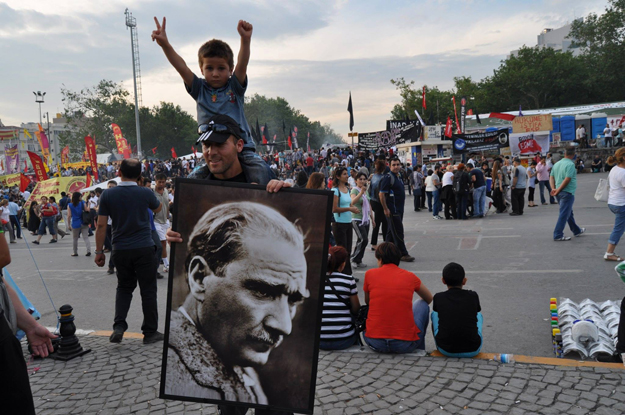When Christina Hawatmeh was a graduate student at Columbia University’s School of International and Public Affairs in 2012, she searched Twitter for breaking news on protests in the Middle East. She soon realized that much of the material uploaded to Twitter ended up “lost” for a variety of reasons: imperfect social media algorithms limit search options; people search for hashtags in multiple languages; and some users fear that a certain hashtag will be monitored by their government. Hawatmeh, now 26, decided that there had to be an easier way to categorize and access updated information on global protests—and if there wasn’t, she was going to create one.
A year later, she founded Protestify, a startup that analyzes and aggregates social media updates containing photos and videos from protests, which they define as any citizen reaction to a news events that inspires a hashtag around the world. Hawatmeh’s team tracks the amount of photo and video content uploaded under specific hashtags in different countries during a given period of time. Since starting with Egyptian hashtags in November 2013, Protestify now feeds more than 2,000 hashtags from 86 countries. The startup also displays photos and videos from global demonstrations on both its website and Twitter feed, allowing large news organizations and other interested parties to skip the slow and inefficient process of combing the Internet for news.
View a selection of Protestify photos here.
The Protestify team’s purpose is two-fold: to encourage citizen journalists to share their accounts of breaking news and to help them get paid for doing so. Hawatmeh describes her company as a facilitator—protesters are looking for outlets for their photos and videos and reporters are scouring the Internet for content—so Protestify works to connect them. “We have so many interesting stories that are happening and nobody is telling them. And that’s the job of the journalist, to connect the data to the story,” Hawatmeh explains.
Citizen journalists can also post their work online with the hashtag #protestify, which goes straight to the Protestify website, making it easier for news agencies to locate photos and videos that they can buy. If a journalist’s photo or video is purchased, Protestify pays them through PayPal. Photos are typically sold for $200 and “newsworthy” videos for $1,000, but prices vary depending on how fresh or valuable the news is.
Thanks to Protestify, social activists from around the world are connecting with one another’s causes—from fighting racism to demanding an end to state violence. “What other time is somebody […] from Ferguson, Missouri, going to be connecting with someone from Gaza and feeling the same sort of pain or social aspiration?” Hawatmeh asks.
All images courtesy of Protestify.





